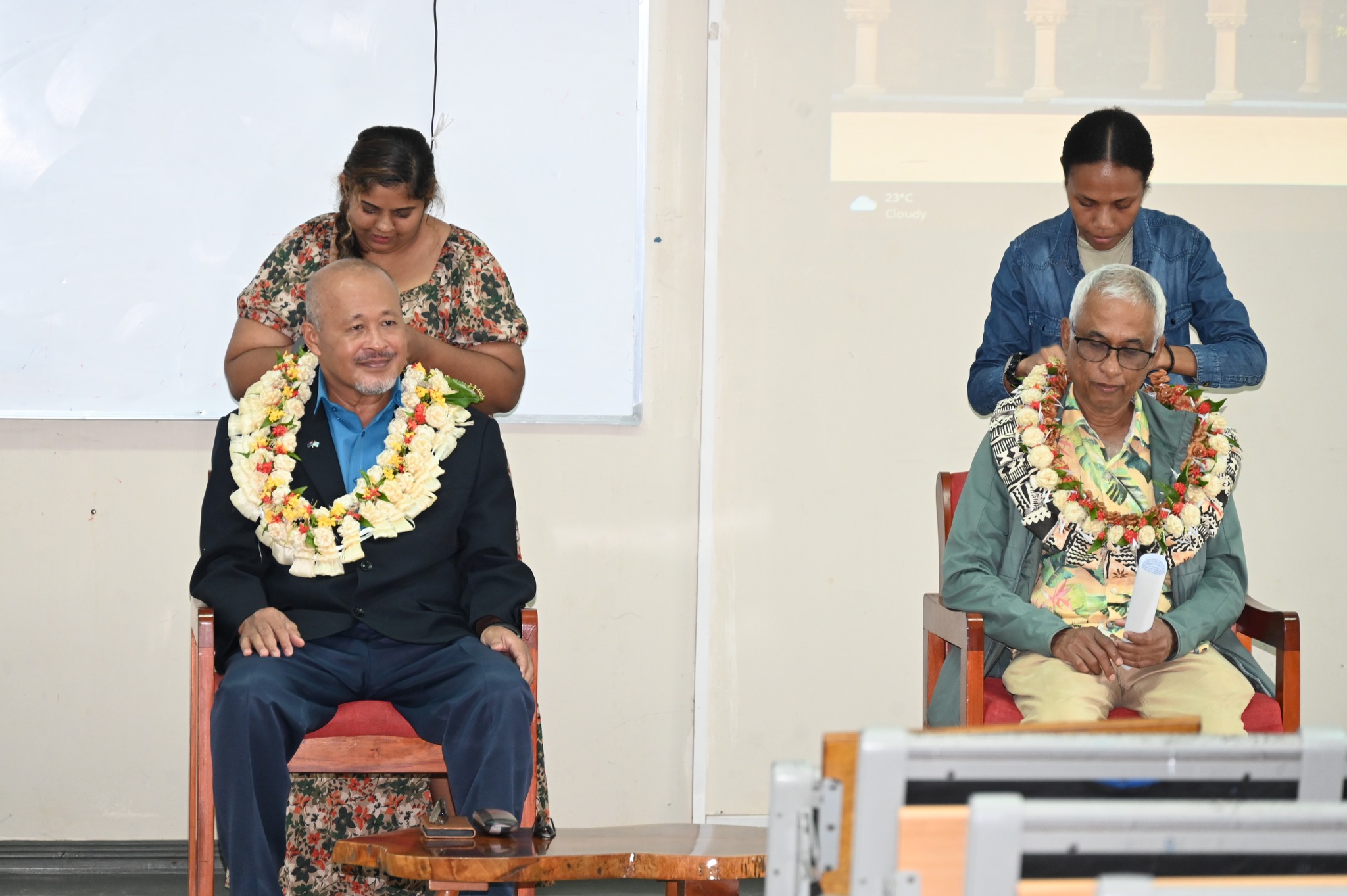PERMANENT SECRETARY AFFIRMS COMMITMENT TO EXCELLENCE IN ANIMAL HEALTH
July 14, 2025

The Fiji Veterinary Examination (FVE) was officially introduced today, marking a significant advancement in the country’s approach to veterinary professionalism and service standards.
Speaking at the official opening in Koronivia, the Permanent Secretary Dr. Andrew Tukana emphasized that the FVE represents not only an academic milestone but a pivotal step into a profession defined by responsibility, integrity, and service.
“It is my honour to welcome each one of you today as we officially commence the Fiji Veterinary Examination,” Dr. Tukana said.
“This moment represents more than just an academic milestone, it marks your transition into the professional world of veterinary medicine, a profession that carries great responsibility and purpose.”
Developed with the support of key stakeholders, the FVE aims to ensure that veterinary services in Fiji align with both national priorities and international benchmarks.
The examination provides a structured path for veterinary graduates whose qualifications currently fall outside the registration framework under the Veterinary Surgeons Act 1956.
Centered on “Day One Competencies,” the FVE evaluates foundational skills, knowledge, and professional attitudes in alignment with guidelines set by the World Organization for Animal Health (WOAH) and the Australian Veterinary Boards Council (AVBC), carefully adapted for Fiji’s unique animal health systems.
Dr. Tukana acknowledged the collective effort behind the development of the FVE, with special mention of consultant Dr. Anand Deo for his instrumental role.
“We are grateful for the expertise and contributions of our partners, including the Fiji National University, the Department of Agriculture, Fisheries and Forestry, Biosecurity Authority of Fiji, the Fiji Veterinary Association, private clinics, and charity animal services.”
“International organizations such as WOAH, FAO, and CSIRO, through the PaNDaS project, have also played a critical role,” he noted.
The two-part examination begins with a theory component that tests clinical reasoning across key animal sectors, followed by a final practical examination focused on hands-on diagnostic and surgical tasks.
Candidates will be assessed on competencies such as animal handling, herd health planning, basic surgery, and pathology.
Dr. Tukana also addressed ethical considerations embedded in the clinical phase. “As a government, we take seriously the need to balance practical training with animal welfare,” he stated.
“All practical procedures are
conducted under humane, regulated, and ethically approved conditions. Where
appropriate, cadaveric models are used to ensure that training meets both
professional and ethical standards.”
He reassured candidates that the FVE is designed to be empowering, not exclusionary. “This examination is not intended to discourage you,” he affirmed.
“Rather, it is a platform to ensure that every veterinarian practicing in Fiji meets the baseline standards necessary to deliver quality care.”
Reflecting on the broader impact of the profession, Dr. Tukana added, “Whether you go on to work in the field, at our borders, in clinics, or in research, your role will be critical to the health of animals, the safety of our food supply, the protection of public health, and the resilience of our agricultural systems.”
As the FVE begins, the
Ministry of Agriculture and Waterways extends its best wishes to all
candidates.
“Veterinary medicine is more than a career, it is a calling, let this examination be the beginning of a long and impactful journey.” Dr. Tukana concluded.
-ENDS-
